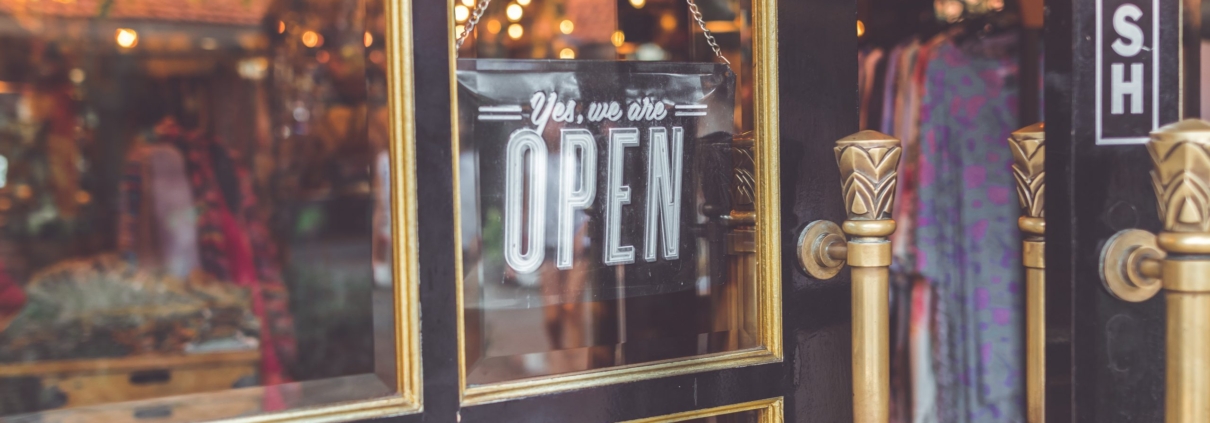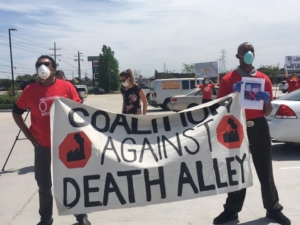Government Loans Bear Unexpected Public Interest
Here’s What You Need To Know
In late April, Allied Progress, a project of activist group Accountable.us, launched TrumpBailouts.org, a website calling out public companies that have received federal funds as part of relief efforts for businesses impacted by COVID-19 and the governmental response to the pandemic. The website, which outlines how much these firms received, how much their executives make, the value of their most recent stock buyback, and their 2019 net income, was just the latest indication of efforts to shift public attitudes and perceptions regarding economic aid for businesses hit by the pandemic and accompanying lockdowns.
In March, lawmakers passed historic spending legislation that dedicated trillions of dollars in benefits to remedy coronavirus shutdown losses for businesses large and small alike. Companies had to make a decision: accept loans from the federal government whose terms were unclear, or risk closing forever, leaving behind millions of unemployed workers and their families who relied upon income from these businesses to live?
As the country reopens, there is now more space for media and activists to examine just who got federal relief dollars and how was it spent, leaving companies vulnerable to attacks for their decision to prioritize their survival and care for their employees. Fueled in part by activist efforts such as Allied Progress’ website, the media is feverishly seeking to unearth anyone who receives a loan, with NBC News’ Senior Business correspondent, Stephanie Ruhle, tweeting she will “search … until my last breath on Earth” to match the publicly disclosed EINs of loan recipients with those of hedge funds and private equity firms because, she believed, “these loans aren’t for you.”
Subscribe to Receive Insights
"*" indicates required fields
The competing pressures on firms will only increase as time goes on and the pandemic, hopefully, dissipates, particularly in sectors that were already boogeymen for partisan actors and many in the media. To ensure public affairs professionals can anticipate what comes next, here’s what you need to know.
There’s No Such Thing as Free Money
Your Receipt of Taxpayers Dollars Will Be Public: Because they’re benefiting from a taxpayer-funded loan, no business will be able to conceal its receipt of the funds. Sen. Marco Rubio (R-Fla.) who chairs the Small Business Subcommittee in the U.S. Senate, has already promised the public will be able to find out who exactly received coronavirus relief loans, and if the Trump Administration won’t do it, his subcommittee will. In fact, concerns regarding fairness and transparency of the programs are already mounting with major media corporations suing the Small Business Administration (SBA) to secure access to government records of the administration of the Paycheck Protection Program (PPP) and the Economic Injury Disaster Loan (EIDL) Advance.
Prepare For A Potential Audit – By the Government and the Press: Businesses who receive rescue loans related to the coronavirus will experience extra scrutiny, with Treasury Secretary Steve Mnuchin telling Fox Business that the IRS will perform a full investigation of any company that received $2 million or more in loans before forgiving them. If the agency discovers loans were not properly managed by recipients, these organizations may be subject to criminal liability. Meanwhile, the Securities and Exchange Commission (SEC) has launched a “PPP Loan Sweep” of public companies, documenting what qualifications businesses believe enables them to receive a loan. And of course, the press and the public will do “audits” of their own, and organizations must be prepared for what they might find.
As Public Sentiment Shifted, so Did the Loan Terms
State of Confusion: At first, loans like the Small Business Administration-managed PPP and EIDL were articulated as stopgaps meant to stimulate the economy and keep American workers paid. But as time went on, the Treasury Department and the Small Business Administration issued more than 40 pieces of guidance in the form of “frequently asked questions,” often providing new or conflicting information to overwhelmed businesses trying to make sense of the terms of their loans. New direction on the loan terms just kept coming, even after the federal government had granted up to $500 billion in aid.
In an effort to curb the issuance of loans to those who might not need them, the Trump Administration issued a rule in late April that would require PPP loan recipients to certify that they couldn’t access any other sources of capital without significantly damaging their “ongoing operations.” Other guidance confirmed PPP funds had to be dedicated mostly to payroll, but often varied on how that payroll could be paid and to whom. This persistent ambiguity left business owners confused and countless others excluded from the aid all-together. As The Washington Post noted, some were holding the money or returning it because they couldn’t figure out the rules.
Easier to Opt Out: For some businesses, the money they’d receive from an SBA loan wasn’t worth the confusion surrounding its administration. In particular, many start-ups in Silicon Valley say they don’t have the time to parse through the intricate and ever-changing regulations governing the loans. For others, opening themselves up to liability in the form of potential audits and media opprobrium isn’t worth the risk. Still others say that the loan is too restrictive, limiting the benefits of its intended purpose of economic support while tying the hands of businesses. The result is increased unemployment claims the loans were intended to curb and businesses left to struggle under lockdowns and other restrictions that prevent them from operating during the pandemic. Already, nearly 100,000 small businesses have shut down since the pandemic began.
Public Pressure on Organizations Meant Workers Lost
Pressure Point: As Americans return to normal life, increased scrutiny of who took advantage of their eligibility for these loans is inevitable. We are already seeing stories of small businesses who shuttered because they couldn’t receive critical assistance while others the American people never considered could be eligible received them. The Washington Post reports $1 billion in small business loans went to public companies, while Forbes senior contributor Erik Sherman claims many of those corporations had plenty of cash in reserves. Even the Catholic Church, which runs tens of thousands of schools and hospitals across America, came under fire for receiving a PPP loan to pay its employees.
Politicians are also getting in on the blame game, with House Speaker Nancy Pelosi (D-CA) demanding a San Francisco-based property management company return its $3.6 million PPP loan. On the right, conservatives successfully forced Harvard University, which enjoys an endowment of nearly $41 billion, to pay its dining hall employees after furloughing them due to coronavirus lockdowns, even as the college obtained a $9 million loan it ultimately returned under pressure.
Return to Lender: Dozens of major corporations have already returned the money they received in small business loans – to the tune of hundreds of millions of dollars. While food service corporations like Potbelly and Ruth’s Chris were among the more notable names to do so, small businesses also chose to return their loans, citing a desire to avoid public scrutiny and potential audits. These range from think tanks like the Aspen Institute to mattress fabric manufacturer Culp. Experts lament that pressure from lawmakers, media, and the public have shamed impacted companies from receiving a needed benefit that would keep their employees paid. As Allyson Baker, a partner at Venable law firm who has been working with companies to secure government loans, explained to Politico, “There’s another side to it, which is, ‘If I don’t take, I might be laying people off, I might be hurting my business, I might be hurting the people I employ. It is something that a lot of people are struggling with right now.”
In the case of the restaurant industry, their decision to forego federal funds might have spared them the pain of a temporary public relations crisis, but it might have prolonged their financial woes and further endangered the jobs of those they employ. Nowhere is that more apparent than Shake Shack, which caved to public pressure after receiving a $10 million PPP loan they obtained to cover lost wages for their hourly workers. In addition to lockdowns artificially depressing their sales, restaurants like Shake Shack now face skyrocketed costs of meat due to production plant shutdowns – exactly the time of “economic uncertainty” contemplated in the PPP application – which makes the cost of doing business even higher even as consumer demand plummets.
Stay Ahead of the Scrutiny
Coronavirus forced a lot of organizations to make a lot of tough decisions. While things are reopening, they’re not out of the woods yet. Smart public affairs professionals have anticipated the operational and reputational risks associated with receiving federal funds, and they’re planning their response. A competitive intelligence advantage from Delve is the best tool they have.



